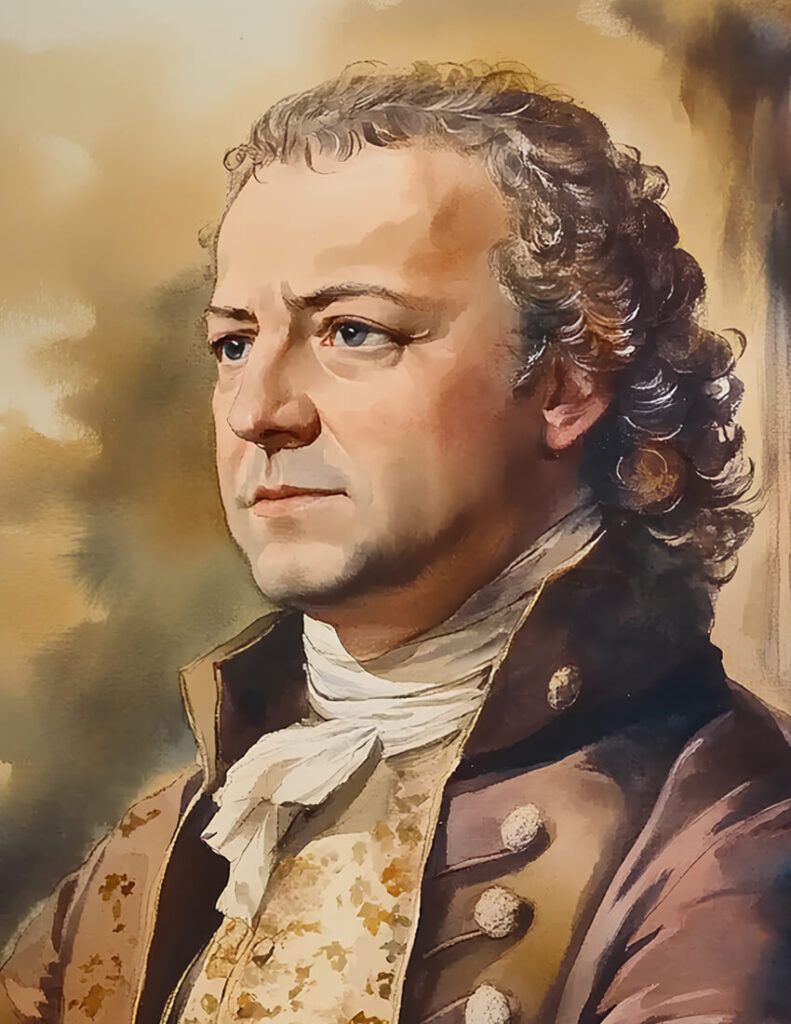00:00
“Come, Thou Fount of Every Blessing” is a timeless hymn that continues to captivate hearts and inspire worship across generations. Its rich lyrics and memorable melody invite us to reflect on God’s endless mercy and our need for His guiding grace. Let’s look at the powerful story behind this beloved hymn and discover how it can enrich our worship today.
Hymn History: Come Thou Fount
Robert Robinson’s journey from wayward youth to celebrated hymn writer stands as a powerful illustration of God’s transformative power. Born in 1735 in Suffolk, England, Robinson faced early hardship with his father’s death when he was just eight years old. As a teenager in London, he fell in with a rowdy gang, their mischief a far cry from the sacred verses he’d later pen.
But God had other plans! In 1752, a divine encounter with the fiery preacher George Whitefield planted seeds of change in Robinson’s heart. Three years later, at age 20, Robinson experienced a profound conversion. It was in this period of spiritual fervor that he wrote “Come, Thou Fount of Every Blessing” at the age of 22.
Interestingly, Robinson’s own life echoed the struggle he articulated in his hymn. He grappled with periods of doubt and denominational changes, embodying the “wandering heart” he wrote about. Yet his words, paired with the American folk melody NETTLETON in 1813, have continued to resonate with believers for centuries, reminding us of God’s unfailing grace amidst our human frailty.
Call to Worship
Need help finding the right words to introduce a hymn? Use this sample “Call to Worship” as a starting point, or let it inspire you to create your a heartfelt invitation to praise in your own words!
Option 1: author bio
As we prepare our hearts for worship, consider this: over two centuries ago, Robert Robinson penned the words we’re about to sing. He faced the same spiritual challenges we encounter today – doubt, temptation, and the tendency to stray from God’s path.
Yet in his struggles, Robinson turned to the source of all blessings. He recognized God’s unfailing grace, ever-present and ever-pursuing.
As we raise our voices together, let us remember that regardless of where we find ourselves on our spiritual journey, this hymn speaks to us all. God’s mercy flows eternally, calling us back to Him.
Option 2: Ebenezer
Our hymns often contain rich, historical words that carry deep meaning, though they may seem unfamiliar at first. Today, we encounter such a word: Ebenezer.
In the book of Samuel, we read of a moment when God delivered Israel from their enemies. In gratitude, the prophet Samuel raised a stone, naming it Ebenezer – “Stone of Help” – declaring, “Thus far has the Lord helped us.”
As we sing “Here I raise my Ebenezer,” we too are erecting a monument in our hearts. We’re proclaiming God’s faithfulness in our lives, just as He was faithful to Israel thousands of years ago.
Let this ancient word remind us that we’re part of a greater story – one of God’s enduring grace through the ages. As we lift our voices, we join countless believers who have raised their own Ebenezers, testifying to God’s unfailing help.
Lead with Confidence
As you introduce “Come, Thou Fount,” remember you’re inviting your congregation into a rich tapestry of faith and history. Consider sharing a brief snippet of Robinson’s story – it might be just the spark someone needs to connect deeply with the lyrics.
As you sing of God’s streams of mercy and our prone-to-wander hearts, let your own vulnerability shine through. This hymn has comforted and challenged believers for centuries – trust in its power to move hearts today!
Blending Suggestions
Try using Come Thou Fount in your worship set with these songs that fit thematically:
- 10,000 Reasons (Bless The Lord) by Matt Redman: Pair this modern anthem of praise with “Come, Thou Fount” to emphasize our call to continual worship. Try segueing from the hymn’s “call for songs of loudest praise” into Redman’s chorus.
- His Mercy Is More by Matt Papa and Matt Boswell: This contemporary hymn beautifully echoes the theme of God’s overflowing mercy: “Our sins they are many, His mercy is more.” Consider using it as a response after singing about God’s “streams of mercy, never ceasing.”
- King Of My Heart by John Mark McMillan: This contemporary song echoes the themes of surrendering to God’s love found in “Come, Thou Fount.” Where Robinson writes “Bind my wandering heart to Thee,” McMillan’s lyrics “Let the King of my heart be the mountain where I run” express a similar desire for God to be our anchor and refuge.
- Reckless Love by Cory Asbury: Both songs speak to God’s relentless pursuit of us. Create a medley that moves from “Jesus sought me when a stranger” to the chorus of “Reckless Love” for a stirring reminder of God’s persistent grace.
By blending these contemporary selections with “Come, Thou Fount,” you’ll create a worship set that bridges centuries, reminding us that while our hearts may be prone to wander, God’s love remains constant. Let the timeless truth of this hymn tune your congregation’s hearts to sing of God’s amazing grace!

